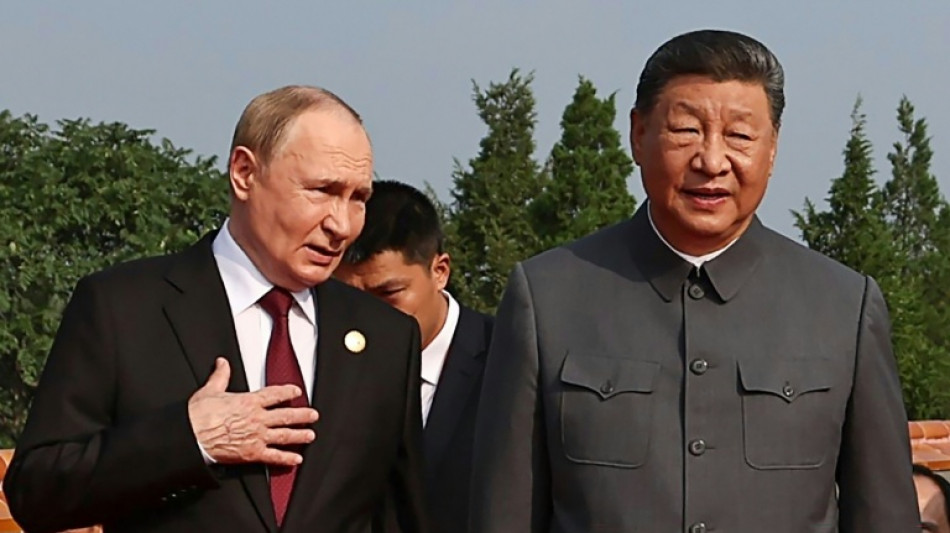
China defends Russian oil purchases, slams US 'bullying'

China said Thursday that its purchases of Russian oil were "legitimate" and decried recent "unilateral bullying" measures by the United States as the trade row between the two countries continues to intensify.
The rebuke came after President Donald Trump said Wednesday that Indian Prime Minister Narendra Modi had promised to stop buying Russian oil, and that he would get China to follow suit.
Trump has accused both China and India of funding the three-year Ukraine war through the purchases, and has also demanded that European allies immediately stop buying oil from Russia.
India neither confirmed or denied it was shifting its policy.
Asked on Thursday about Trump's intention to pressure China further, Beijing's foreign ministry defended its "normal, legitimate economic, trade, and energy cooperation with countries around the world, including Russia".
"The actions of the United States are a typical example of unilateral bullying and economic coercion," ministry spokesman Lin Jian said at a press briefing.
If China's interests are harmed, it will "take firm countermeasures and resolutely safeguard its sovereignty", he warned.
Beijing and Moscow are key trading partners, and China has never denounced Russia's war, nor called for it to withdraw its troops.
Kyiv and Western governments have long accused Beijing of providing political and economic support for Moscow.
- 'Profoundly detrimental' -
Beijing on Thursday also criticised recent US moves to expand export controls and impose new port fees on Chinese ships, saying the measures had a "profoundly detrimental" impact on trade talks between the two superpowers.
While tensions between Washington and Beijing have de-escalated from their peak, the truce remains shaky.
After Beijing imposed fresh controls on the export of rare earth technologies and items, Trump said he would roll out an additional 100-percent tariff on the country's goods from November 1.
The United States announced in April it would begin applying fees to all arriving Chinese-built and operated ships after a "Section 301" investigation found Beijing's dominance in the industry was unreasonable.
Section 301 of the US Trade Act of 1974 enables Washington to impose trade penalties on countries whose practices are deemed unfair or harmful to American commerce.
Beijing responded last week by announcing "special port fees" on American ships arriving at Chinese ports. Both sets of fees took effect Tuesday.
Commerce ministry spokeswoman He Yongqian said Thursday the US moved ahead with the measures while "disregarding China's sincerity in consultations", causing "severe damage to China's interests... (and) a profoundly detrimental impact".
"The Chinese side expresses strong dissatisfaction with and resolutely opposes the series of actions taken by the US side," He Yongqian said.
She urged Washington to "immediately rectify its erroneous practices" and respect the outcomes of recent trade talks.
China's commerce minister Wang Wentao accused the US of sparking the latest trade row during a meeting with Apple CEO Tim Cook in Beijing.
"Maintaining the overall stability of China-US trade ties requires both sides to meet halfway," Wang told the visiting American CEO according to a ministry readout.
"Maintaining the overall stability of China-US trade ties requires both sides to meet halfway," Wang said, adding that China welcomed deeper investment from Apple and remained open to foreign firms.
I.Wroblewski--GL

 London
London

 Manchester
Manchester
 Glasgow
Glasgow
 Dublin
Dublin
 Belfast
Belfast
 Washington
Washington
 Denver
Denver
 Atlanta
Atlanta
 Dallas
Dallas
 Houston Texas
Houston Texas
 New Orleans
New Orleans
 El Paso
El Paso
 Phoenix
Phoenix
 Los Angeles
Los Angeles



